Just words
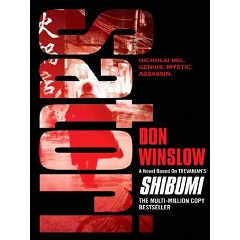
Satori

By Dom Winslow, 256 pages, published the 13th July 2004 by Vintage. (978-1400075065)
I had read Trevanian some eons ago, so finding this novel at the local bookstore picked up my interest. This book is indeed the continuation -or based on- of Trevanian's Shibumi, which had a mix of oriental fighting arts, mystic, sex content and sophistication that I found at some moment appealing.
In Satori the same line remains, the prose is good, the plot is James Bond-believable, and the description of places and situations really well developed. But, somehow, it has not the soul of the original novel; and the characters, definitely, look cheap stereotypes, placed there to fill a story, making the whole plot even more forgettable. Or perhaps, on the lapsed eons, I have grown to expect something more from my readings, because I found the book extremely boring.
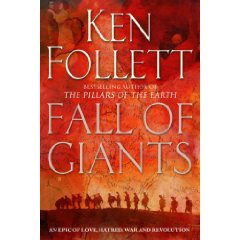
Fall of Giants

By Ken Follet, 864 pages, published the 26th May 2011 by Pan. (978-0330460552)
Like almost every Ken Follet's book, never mind the thickness of the book, starting it implies letting everything else aside, getting involved on the stories of its many characters to wake up a few days letter, just wanting more, waiting for the next book in the saga.
This book is a description of an era, the years of the First World War, related not as a political event, or even a historical one, but as a theatrical description of the day by day life. And this description is quite long reaching, as it includes the poor and the rich, miners and the ambassadors, soldiers and civilians, bolsheviks and americans.
It takes no one's part, life becomes so miserable in the German front as on the Allies front; if there is some animosity on the author is against the powerful roles -in each of the involved countries-, whose follies produced the death of millions of people.
The author performs the usual mix of fiction and reality; but the described events have undergone a proper research. I guess this book would not pass muster as a history book, but for many readers it will definitely provide a motivation to better understand a not so distant war.
Interesting book, great story, impossible not to praise it.

Tigerlily's Orchids

By Ruth Rendell, 352 pages, published the 4th August 2011 by Arrow. (978-0099550631)
A book with many characters, most getting the focus at some time to develop on their stories, providing for an agreeable read. The book is in fact a mystery one, with two crimes entangled on the main story, but even the murder looks irrelevant, like an accessory to better tell the story of this group of neighbors.
And these stories are very well described, the author almost sets the reader on each character's skin, shame that those personalities look banal at best.
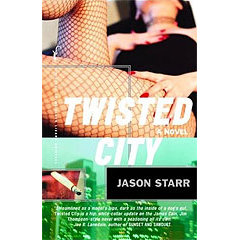
Twisted City

By Jason Starr, 256 pages, published the 13th July 2004 by Vintage. (978-1400075065)
New York story, interesting start, a bit of a drama and some romance, good development, and then the story is suddenly sordid, although, being the book so short, doesn't really get depressing.
Nice read, in fact, if you are in for a black story; and the end honors the title with its own twist.

Snobs

By Julian Fellowes, 352 pages, published the 31st December 2011 by Phoenix. (978-0753827932)
A comedy, a romance, a curious description of another world. And the best is the humor on the writing, the prose on first person mixing fictions and facts. And the critical thinking, short paragraphs where the author starts a reflection on some passage, which I found, for the most part, very interesting.
The book has a plot, an average romance. But the real argument is the telling of the story, a description of a fascinating (that not appealing) world, of its characters, a background to make abundant observations in clue of satire.

Now You Are One of Us

By Asa Nonami, 240 pages, published the 18th September 2007 by Vertical Inc. (978-1934287033)
As a very general rule, most of the Japanese books I have read included some dose of spirituality, of mysticism. Kind of a requirement to explain some outstanding situations.
This novel is just antagonistic: a story definitely abnormal is just explained on the very grounding argument of hallucinogens. Unfortunately, it also makes the story quite poor, with very weak characters. The result is, at best, just creepy.
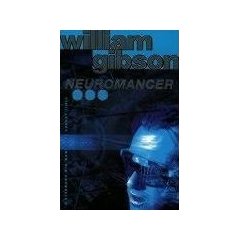
Neuromancer
By William Gibson, 320 pages, published the 27th November 1995 (reedition) by Voyager (978-0006480419)
So, this is it; a masterpiece, seminal work in the cyberpunk genre, winner of the greatest science fiction prices.
The plotting, the ideas in the book, are superb. In special, because the ideas were new in the book.
But the storytelling, is more like story-shaking, like the author was setting so many groundbreaking ideas that they could not be slowly given, becoming quickly a real challenge to follow.
It is as incomprehensive as original, and reading it slowly, concentrating on some parts of the plot, only helps uncovering the many holes in the story.
I am still unsure if this is a must read, or a must miss. As good as that.
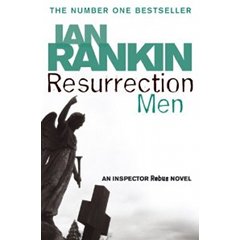
Resurrection Men

By Ian Rankin, 512 pages, published the 7th August 2008 by Orion (978-0752883656)
Again, solid grounds with Inspector Rebus.
Not outstanding, but very good all the same; just a must for any Rebus fan, as expected.
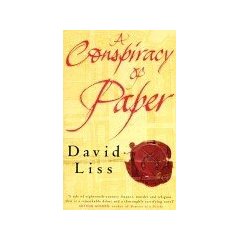
A Conspiracy of Paper

By David Liss, 512 pages, published the 3rd May 2001 by Abacus (978-0349114200)
Suspense with a financial background, or perhaps the opposite, a financial story written as a suspense novel. Definitely smart, the novel is very interesting, almost scholar, and the historical ambience perfectly achieved.
Not to be missed.

Genesis

By Karin Slaughter, 560 pages, published the 15th April 2010 by Arrow (978-0099509752)
Great characters, interesting story, and an ingenious plot shape this well developed thriller; and even the ending is unexpected.
It is not perfect; for once, I really disliked the gorey start; and the ending comes too quickly and lets the story a bit orphan, with some naive explanation of the history behind the crimes. Gives the impression of a careful studied plot completed on a rush. But totally recommended.
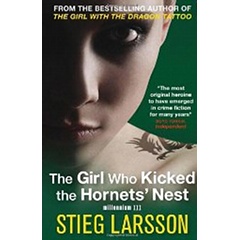
The Girl who kicked the Hornets' Nest

By Stieg Larsson, 656 pages, published (reprint) the 1st April 2010 by Quercus Publishing Plc (978-1849162746)
I read the second part of the trilogy 20 months ago, and I was resisting the urge to buy this last part; but after a couple of bad novels, I was lusting for a good reading time. Didn't let me down, I started it at some slow pace, that got quickly into compulsive mode.
The plot is complete, filling even the few cracks in the previous books. In the whole series, the only part that I find unsatisfactory is the computer hacking: not because is totally impossible to happen, but for the total reliance of the stories on it: the events always reach some impasse, conveniently solved through some convenient PC intrusion. But this complain makes no dent on my impression of the series, indeed fantastic.
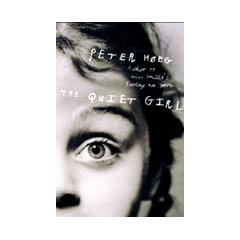
The Quiet Girl
By Peter Hoeg, 416 pages, published the 4rd September 2008 by Vintage (978-0099507352)
The book starts more than promisingly. The first pages are a real pleasure to read, the prose is beautiful.
Soon, the reader -well, me-, starts to question his own intelligence, as the book seems erratic, so re-reading pages starts to be the norm. Then, the reader decides an aggressive approach and starts questioning the status of the writer, and soon thereafter, stops reading the book.
Slightly ashamed to admit it, I haven't read this book, after 90 minutes of fighting it I gave myself a definitive moratory, storing the book on that part of my shelves that conforms my particular Hall of Shame.
Obviously, I cannot recommend or criticize it. But take it easy if you go for it.
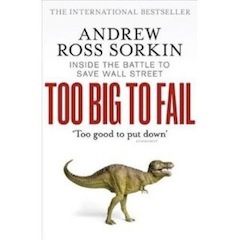
Too Big To Fail 
By Andrew Ross Sorkin, 640 pages, published the 1st July 2010 by Penguin (978-0141043166)
A total fiction on the big crisis surrounding Lehman Brothers, that is not fiction at all. The work done by Andress Ross Sorkin to provide a full scenario for the events described in the book is just superb, as to wonder if most of them were just a fictional recreation (the notes and sources at the end of the book convinced me that this was not the case).
The book is fascinating, and leads too often to be read as just a novel; for that reason, is easy to read it compulsively, missing then the introspection to understand what really happened in that crisis. The book described the institutions participating on the chaos, but it focused on the people, on the individual characters that shaped it. It does not study the economics that originated the crisis -although the steps are perfectly described-, and exposes no lessons learnt from the debacle, perhaps because the institutions themselves seem oblivious to any such lessons.
As such, is therefore a very interesting relate of the crisis events, and I would recommend it to anybody trying to understand why -humanly- this crisis ever happened.

Manazuru 
By Hiromi Kawakami, 224 pages, published (reprint) the 31st August 2010 by Counterpoint LLC (978-1582436005)
After 15 months retired from Japanese literature, my return was very disappointing. Manazuru is slow, unimaginative, and lacking any of the mystic and magic that I usually associate to contemporary Japanese books; not that it doesn't try, it includes its ghost that leads the protagonist and intuition seems to be the only driver, but somehow the magic is totally missing.
Then, its slowness; not that nothing happens, is more like nothing can happen, like any resemblance to have a plot is again the boot itself. So the book is nicely written, is easy to read, to enjoy its words, but has no lesson, no end; it is like reading a book for the pleasure to see its words coming together. Just not enough.